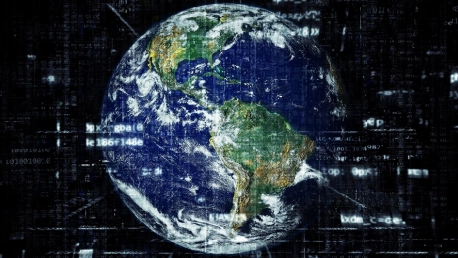One piece of news that went almost unnoticed recently is that Russia is taking a major step in cyberwar preparations, successfully testing RuNet, the Russian Sovereign Internet, by disconnecting from the global internet. In June and July, Russia successfully tested its disconnection from the World Wide Web, the RBC daily reported, citing documents from the working group tasked with improving Russian internet security. Let’s take a look at how and why Russia is trying to disconnect itself from the global internet.
Russia’s “Sovereign Internet” Law
In late 2019, Russia passed the legislation known as the “sovereign internet” law. According to Russian officials, with this package of legislation enacted by President Vladimir Putin, Russia aims to protect itself as a country from the risks of cutting off access to foreign infrastructure, in response to what Moscow has called the “aggressive nature of the US national cybersecurity strategy”.
The “sovereign internet” law allows the government to switch off the country’s internet in the face of a cyberattack, as well as locate and block web traffic. Because the law is vague over what constitutes a threat, critics said it was a step towards the heavily restricted model of internet use enforced in China. Under the new legislation, Russian internet service providers (ISPs) are now required to install “deep package inspection” (DPI) tools within the country, meaning equipment that allows providers to locate the source of web traffic in order to reroute and block it if needed.
According to Kremlin spokesman, Press Secretary for the President of Russia, Dmitry Peskov, the tests were carried out under Kremlin’s supervision, stating that with this success following the preliminary results Russia is to be prepared for any external threat. “The tests were aimed at improving the integrity, stability, and security of Russia’s internet infrastructure,” Russian Telecommunications Authority officials stated.
Skeptics Question Whether the State-controlled RuNet Project Will Ever Be Fully Implemented
Skeptics say it’s almost impossible for Russia to be completely disconnected from the global network. They argue that, in practice, any change to root zone entries retained by all 13 major US registry operators is illegal.
The new Russian Sovereign Internet Legislation has also caused concern among freedom of expression activists, who fear that, between measures already taken and those to come, Moscow will strengthen the Russian government’s surveillance capabilities over both Russian and global cyberspace.
Despite the skeptics’ arguments, Russia has announced tests involving all of Russia’s major telecommunications firms. Tests of Russia’s Sovereign Internet carried out between 15 June and 15 July involved all major Russian telecom firms and were deemed a success, according to the preliminary results, according to RBC, which quotes an official source inside the working group, without giving details of how long the disconnection from the global network lasted or whether there were any interruptions to internet traffic.
“The purpose of the tests is to determine the ability of ‘RuNet’ (Russia’s Sovereign Internet) to function in the event of external distortions, bottlenecks, and other threats,” the source told RBC.
RuNet Already Offers Several Popular Services in Russia
Although there are still many areas outside of metropolitan Russia that do not have sufficient internet coverage, RuNet already offers several popular services in Russia that include email providers including Yandex and Mail.ru, numerous news sites including the most popular Gazeta.ru, as well as social media platforms that have amassed tens of millions of users, the most popular being VKontakte (VK) and Odnoklassniki.
Gazprom Media Holding, a subsidiary of state energy giant Gazprom, is building an app similar to TikTok. A Russian Wikipedia is expected to launch in 2023 to ensure Russians have access to more “detailed and reliable” information about their country.
Russia’s Future Plans and the Importance of Cyber-warfare
Russia’s future plans call for the construction of a closed network with the other members of the BRICS (Brazil, Russia, India, China, and South Africa) group. These plans have already been agreed in preliminary discussions on the subject among member countries. In November 2017, Russia’s Security Council agreed to the proposal to create an alternative network that would be accessible only to BRICS nations. The system would involve backup DNS servers located in BRIC countries, independent of those managed by the ICANN organization.
When it comes to internet control, everyone is looking at China, almost completely ignoring Russia. Basically, Russia plans to become again a feared superpower not only from a military point of view but also concerning cyber warfare capabilities. Experts are already talking about the intensification of security incidents like the attack on the US East Coast oil pipeline, which has led to the shutdown of oil production for several days, and the attack on Microsoft servers, which led to the massive hacking of Microsoft’s Exchange messaging servers.
The recent step taken by Russia in this direction opens the way to a new type of cyber warfare in which Russia becomes an extremely dangerous player.









